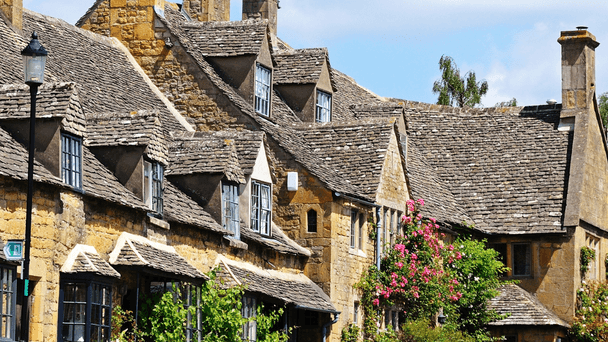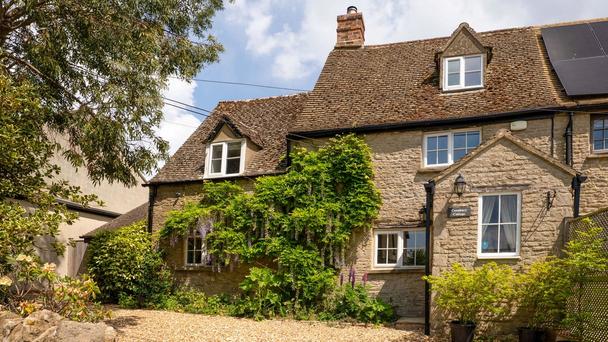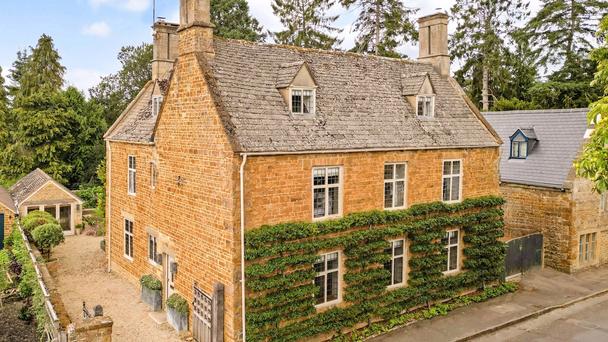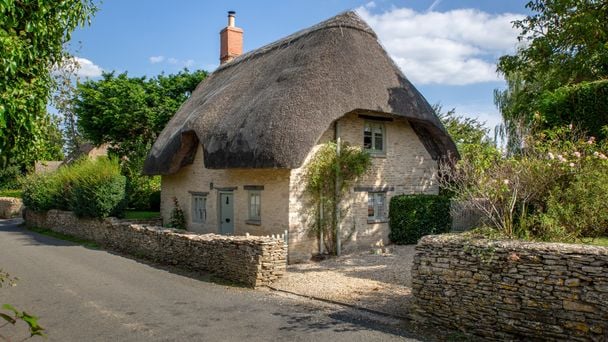
Daunted by Probate?

There is a great deal to do when someone close to you dies. In addition to both shock and grief, there are certain formalities which are required by law, all of which can be overwhelming.
Forearmed, is forewarned, and familiarity with the process prior to a death is often both reassuring and helpful.
To briefly summarise, probate is the judicial process of authenticating a last Will and Testament, if the deceased made one. It includes locating and determining the value of the deceased's assets, paying final bills and taxes, and distributing the remainder of the estate to the rightful beneficiaries.
Where do we as Valuers come in?
If property was owned by the deceased, then this will need to be valued as part of the process to obtain a grant of probate.
Whilst obtaining a probate valuation is administratively important, it is vital to ensure proper co-ordination between valuer and tax advisors to ensure that valuations are properly considered, and tax liabilities are mitigated where possible.
This is something Butler Sherborn does regularly for houses, farmland, estates and equestrian property.
In an attempt to make this process easier, we have compiled a short summary of answers to frequently asked questions, designed for both family members and Executors.
Probate Valuations – Common Queries Explained
I am an Executor of an estate. Will I need Probate to sell the Property?
All assets which were held in the deceased’s sole name will be ‘frozen’ after death, until a Grant of Probate has been obtained.
The word Probate means ‘proving’, as it involves proving that the Will in the Executor’s possession is the last Will of the deceased. Probate is an Order of the Court officially granting the Executor the power to administer the estate. If the deceased did not leave a Will, then the Court will appoint an Administrator, usually the deceased’s closest relative.
Once a Grant of Probate (or Grant of Letters of Administration) has been issued, the Executor or Administrator will be able to sell the deceased’s property.
How long should Probate take?
The administration of an estate can often be a straightforward process, but sometimes it can be more complex and is often time consuming.
It can be difficult to predict how long the process will take. A Grant of Probate is usually issued within about three to six weeks from the date the Probate Registry receives the application papers. This is provided that all Inheritance Tax (IHT) has been paid before the application is submitted. Paying the IHT before the Grant has been issued can cause problems as the Executor usually cannot access the deceased’s assets to pay the tax. However, HM Revenue & Customs will usually agree that IHT on the property can be paid in instalments, until the property is sold.
Obtaining the various valuations of the deceased’s estate prior to submitting the application for Probate can however take some time. The pandemic further increased the work load, and it is therefore not uncommon for a Grant of Probate to take up to six to eight months from the date of death and longer in more complex cases.
What needs valuing and why?
All of the assets and liabilities in the deceased’s estate will need to be valued as at the date of death in order to work out if the estate will be chargeable to IHT, and if so, how much IHT will need to be paid.
This includes cash in bank accounts, investments, life policies, personal effect and property. The Executors are unable to arrange the affairs of the deceased until probate has been granted.
Commonly valuations are needed for property and personal effects (known as chattels), particularly where the property is going to be sold, rather than passing to a surviving spouse.
Do I need a formal valuation and who should do it?
Valuations for ‘Capital Gains Tax & Inheritance Tax purposes’ can be carried out by the Executor/Administrators who can provide their opinion of the value of the property.
However, lay Executors/Administrators are usually not experienced enough to give an accurate figure. A qualified Chartered Surveyor can provide a formal valuation, providing they are accredited by the Valuer Registration Scheme (VRS).
It is always advisable to appoint a qualified Chartered Surveyor to ensure that the property is not overvalued, and unnecessary IHT paid as a result.
If the valuation is too low, the District Valuer can question the figure which must be defended by the person that provided it. HM Revenue & Customs are more likely to accept a properly drafted and supported valuation provided by a Chartered Surveyor. In addition, a Chartered Surveyor will be better equipped to negotiate the value with HM Revenue & Customs should they raise any queries.
It is important to note that the Probate value will also become the base cost for calculating any Capital Gains Tax (CGT) should the value of the property increase during the administration period.
Commonly lay Executors/Administrators do not seek professional advice and try to submit a low value for IHT, to be later stung with CGT, because the property has sold for more than the probate value declared to HM Revenue & Customs.
Do Estate Agents do Probate valuations for free?
Increasingly agents charge for carrying out formal valuations, but then offer to deduct all or part of this fee from their commission if they get the subsequent sale of the property within a reasonable time. Some agents may still be willing to provide the valuation for free, under the proviso that they get the subsequent sale if a decision is made to dispose of the property. As the compliance requirements for formally produced valuations advance, this is now less common.
Is a Probate valuation lower than the market value?
Valuations for Capital Gains Tax, Inheritance Tax and Stamp Duty Land Tax purposes are based on the statutory definition of market value, which is:
‘The price which the property might reasonably be expected to fetch if sold in the open market at that time, but that price must not be assumed to be reduced on the grounds that the whole property is to be placed on the market at one and the same time’.
In applying this valuation definition, a ‘market value’ is therefore required for probate purposes. However, the skill of a Chartered Surveyor undertaking the valuation is to advise on a value that is still acceptable under the terms of the statutory definition, but that ensures that the Executors pay as little tax as possible.
What should I do if I am also interested in selling the property?
If you are interested in selling the property, you should ideally appoint an agent before Probate is granted. An agent will be able to advise on an appropriate marketing strategy for selling the property and any steps the Executor/Administrator can do in order to maximise the marketing potential. It is important that marketing advice and probate valuations are co-ordinated if possible.
What happens if the sale price is lower than the Probate value?
If the property is sold within 4 years of the date of death and the sale price is lower that than the figure provided for Probate, a claim can be made to HM Revenue & Customs for a refund of any overpayment in IHT.
What happens if the sale price is higher than the Probate value?
If the property is sold soon after Probate is granted and the sale price is more than the figure submitted for probate, HM Revenue & Customs may try to substitute the sale price instead of the previously submitted figure and recalculate the IHT liability. This can however be challenged and negotiated with the District Valuer if required. Alternatively, HM Revenue & Customs may view the increase as a gain during the administration period, and therefore CGT may be payable.
We are happy to discuss any valuation requirements in confidence and without obligation.
If you do have any queries, please contact Richard Greasby - Valuation Rural Team on 01285 883740 or richard@butlersherborn.co.uk

Why the Cotswolds Remains One of the Strongest Property Markets in the UK
Few regions in the UK combine lifestyle appeal, long-term value and consistent demand quite like the Cotswolds. Despite periods of national market uncertainty, the Cotswolds continues to stand out as one of the country’s most resilient and desirable property markets, attracting homeowners, investors, and international buyers alike. So, what underpins this enduring strength?
Why the Cotswolds Remains One of the Strongest Property Markets in the UK
A Personal Approach to Property: Client Experiences with Butler Sherborn
At Butler Sherborn, client experience sits at the heart of everything we do. Across sales and lettings, our teams pride themselves on professionalism, local knowledge and a truly personal approach. The following recent reviews from 2026 highlight just a few of the outstanding experiences our clients have shared.
A Personal Approach to Property: Client Experiences with Butler Sherborn
January Market Comment
January has seen us firmly up and running across the Cotswolds. Activity has been encouraging, with positive levels of interest and a busy start to the year. We have already agreed a good number of sales across our three offices in a range of different price points, which is a positive indicator of buyer intent following what was a very cautious 2025, with low confidence and many delays.
January Market Comment
Three Quintessential Cotswold Cottages – Full of Character & Charm
With Valentine’s Day just around the corner, there’s something undeniably romantic about the idea of escaping to a cosy Cotswold cottage. Think honey-coloured stone walls, crackling log fires and soft lamplight spilling across plush sofas - perfect for long conversations, shared glasses of wine and slow, unhurried mornings. In winter, the Cotswolds reveal a quieter kind of beauty, with misty lanes, frosted fields and snug village pubs just a gentle stroll away. It’s a setting steeped in charm and warmth, and utterly quintessential in its British appeal.
Three Quintessential Cotswold Cottages – Full of Character & Charm





